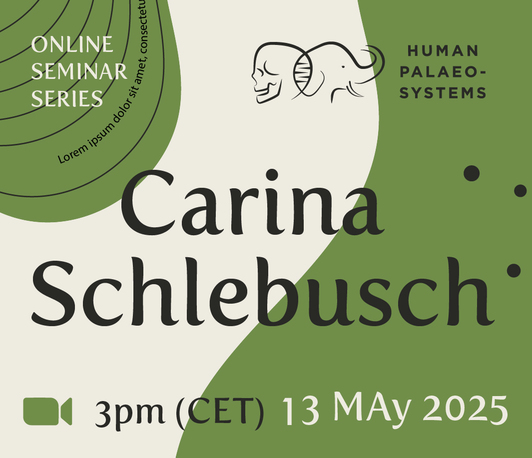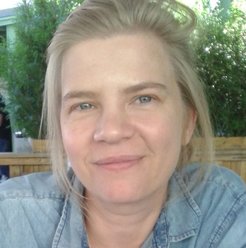African history – inferences from modern and ancient DNA
- Date: May 13, 2025
- Time: 03:00 PM - 04:00 PM (Local Time Germany)
- Speaker: Prof. Carina M. Schlebusch, Human Evolution, Department of Organismal Biology, Uppsala University, Sweden
- Location: Online
- Host: Human Palaeosystems Research Group
- Contact: kutowsky@gea.mpg.de

Genetics helped to establish Africa as the birthplace of anatomically modern humans. However, the history of human populations in Africa is complex and includes various demographic events that influenced patterns of genetic variation across the continent. Through genetic studies of modern-day, and most recently, ancient African genetic variation, it became evident that deep African history is captured by connections among African hunter-gatherers, displaying the deepest population divergences. Furthermore, it was shown that Holocene population expansions and large-scale migrations, linked to food-production and technological innovation, had a significant influence on the distribution of current-day Africans. These later population movements disrupted pre-existing population distributions and complicate inferences regarding deep human history. With the increased availability of full genomic data from diverse sets of modern-day and prehistoric Africans we have more power to infer human demography and the next few years will be exciting for investigating African genetic history.
About the Speaker

Carina Schlebusch is Professor in Human Evolution at the Department of Organismal Biology - Uppsala University (Sweden). She heads a research group that investigates human evolutionary history with a focus on Africa. Her research is funded by the Swedish Research Council, European Research Council and the Wallenberg foundation and her research projects investigates African history from a genetic perspective. Carina was born in South Africa and completed her PhD at the University of the Witwatersrand, Johannesburg. Her thesis dealt with the history of southern African population groups and specifically with the population genetics of Khoe-San groups. In 2009, she moved to Uppsala University, where she completed a Wenner Gren fellowship postdoc. After her postdoc, she continued her research at Uppsala University and started her own research group in 2015. The Schlebusch group uses genetic research as a tool to investigate African population history and migrations of people within the African continent.
